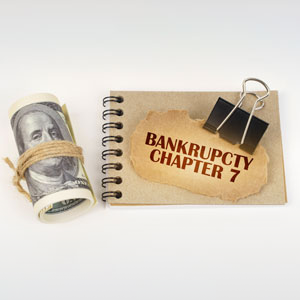
In a Chapter 7 bankruptcy, your assets are evaluated to determine what you can keep and what may need to be sold to pay creditors. Each state has specific exemptions, which dictate what property is protected. For example, in Iowa, you can keep 100% of the equity in your home, which is a significant benefit compared to states like Missouri, where you might only keep a portion, such as a cap of $15,000 of the home’s equity.
The process begins by listing all your assets, including cars, real estate, bank accounts, and retirement accounts, among other things. Then, exemptions are applied based on state law to determine what you’re allowed to keep. Items that exceed the exemption limits like luxury vehicles or recreational items, such as boats might have to be turned over to the bankruptcy trustee or sold to pay off creditors. However, careful planning and understanding of exemptions can help protect some of these assets.
The key is to ensure that your assets are organized properly to maximize the protections offered by your state’s laws.
In Iowa, some types of assets are more at risk during a Chapter 7 bankruptcy than others. This is particularly true of vehicles and cash. If you have multiple vehicles or excessive equity in a vehicle, that could raise concerns, as anything beyond the exempted value may be at risk of being sold to pay creditors. Cold hard cash is another asset that’s particularly vulnerable if you have a large amount of cash, like $10,000, it’s likely the bankruptcy court will take it to pay off debts.
However, the good news is that Iowa offers strong protections for certain assets. For instance, your home equity is fully protected, as are retirement accounts, child support, and Social Security benefits. Wages are generally protected as well, and most of the time, bank accounts don’t pose major concerns. As a result, in Iowa, people are often able to keep their car, their house, and other essential assets, making the process more manageable than in some other states.
Bankruptcy trustees typically focus on non-exempt assets when determining what to liquidate for the benefit of creditors. For an asset to be worth selling, it must provide a meaningful financial return to the bankruptcy estate. For example, a broken-down car valued at $500 is unlikely to be liquidated. The trustee would have to handle the sale, cover administrative costs, and distribute the proceeds. If the effort involved outweighs the benefit, the asset is abandoned and left with the debtor.
Trustees also assess whether selling an asset would generate enough money to justify the process. After covering expenses like hiring a broker or organizing an auction, the remaining funds are distributed to creditors. Trustees receive a percentage of the proceeds for their role, but they prioritize actions that provide a clear advantage to the estate rather than pursuing items with minimal value.
Any money you inherit during the six months after you file must be turned over to the bankruptcy estate for administration. Gifts, such as stocks, are generally not liquidated.
It’s natural to worry about losing everything during bankruptcy, but the reality is that most people retain the majority, if not all, of their assets. In Iowa, the state’s generous exemptions play a significant role in protecting your property.
To ease concerns, the process begins by creating a detailed list of your assets. From there, we then evaluate how these exemptions apply to your specific situation.
One of the first questions clients ask me is whether they can keep their home or car. I make it a point to address these concerns upfront and show how the exemptions safeguard these essential items. Most quickly realize they’re unlikely to lose anything significant and are put at ease.
Additionally, before discussing any debts, we determine your eligibility for Chapter 7 or Chapter 13 bankruptcy. This step-by-step approach will go far to provide you with clarity and reassurance, helping you feel secure and confident in a bright financial future.
For more information on Chapter 7 bankruptcy and assets, a free initial consultation is your next best step. Get the information and legal answers you are seeking by calling (515) 276-7211 today.